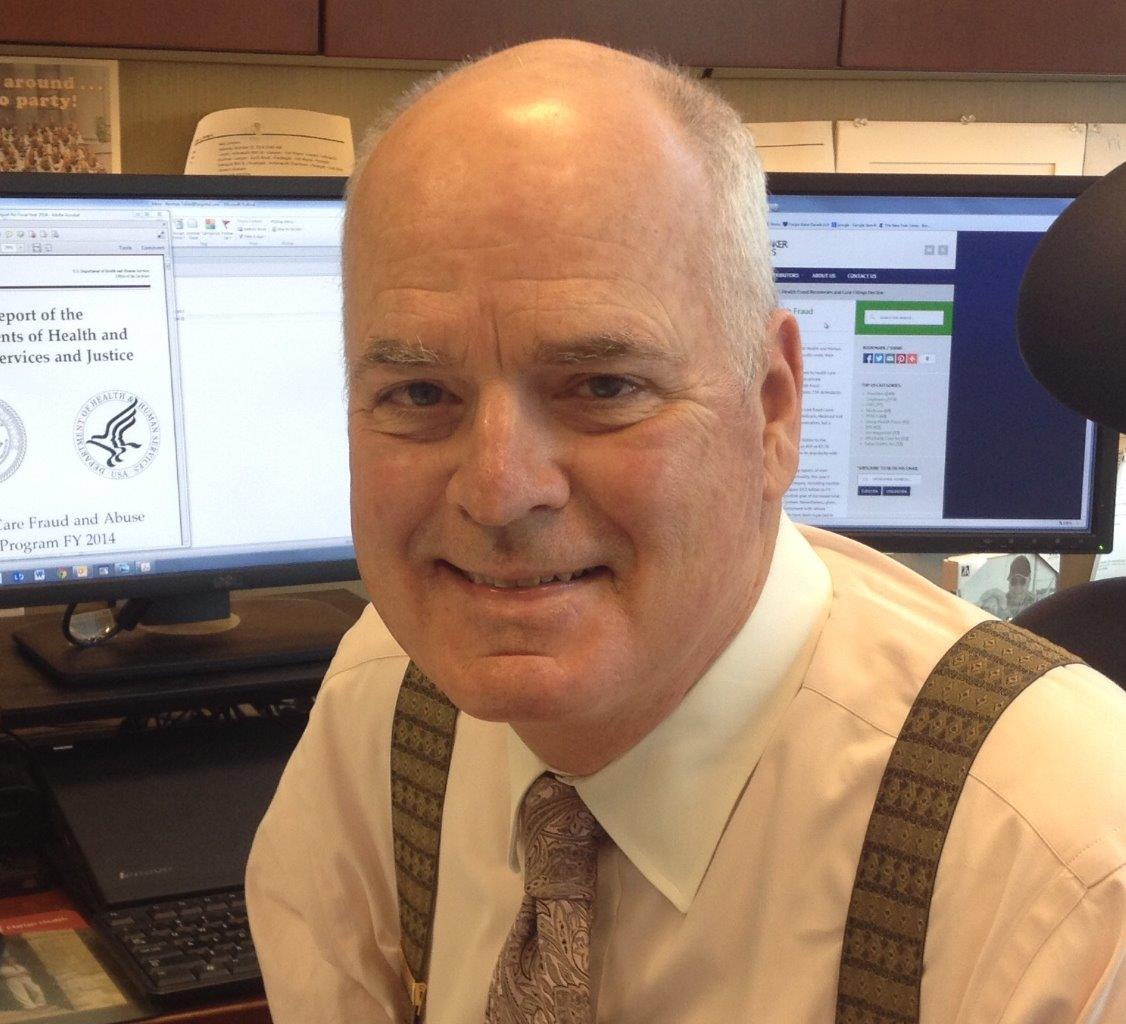Why the law suit fits this lawyer's style

Norm Tabler.
It’s Thursday morning. I’m at my desk in the smallish office my law firm provides me as a retired partner. One thing distinguishes me from all the other men in the office this morning (besides being the oldest): I’m wearing a suit and tie. Well, technically, I’m wearing part of a suit. My suit jacket is hanging on my coat rack.
If my firm is representative, it’s now unfashionable for lawyers—even in the biggest firms—to wear a suit and tie to the office. Suits and ties are reserved for court appearances and rare formal meetings. Before sitting down to type this, I walked the entire floor of my building, looking into every office—some 60 of them. I encountered exactly one other male in a suit. He was in the elevator lobby on his way out, so I’m not counting him.
The firm’s official dress code now is casual. All our lawyers dress casually, except on Fridays, when they dress super casually and jeans are allowed. If the Colts are playing that weekend, we’re encouraged to top our jeans with a sweatshirt bearing the team logo. That would have been a firing offense when I joined the firm almost half a century ago.
I don’t remember when the steady slide toward casual attire began, but I do remember how it began. One day years ago, I realized that for weeks I had been seeing associates without ties. That was startling. I asked a fellow partner—one more in touch with firm management than I was—about it. He reported that management now allowed a lawyer to come to work dressed casually if it was appropriate for the day ahead.
I bit, asking how one knew if it was appropriate. He said management considered it appropriate if the lawyer’s day involved no court appearances, depositions or meetings with government officials, clients or client prospects. I didn’t share my inner reaction with my partner. It was, why in the world would I announce to the rest of the firm that I had nothing important going on? Wouldn’t it be simpler to send a firmwide memo declaring that my practice was on the skids and my partnership share should be cut?
So, I have never dressed casually at the office—not even now in retirement. The single concession I make is that in recognition of Casual Friday, I wear a sport coat and tie rather than suit and tie. (Once, I even wore tasseled loafers instead of tie shoes, but it made me feel so light-headed that I never did it again.)
It’s not just that I won’t admit not needing to impress a judge or client on any given day. Everyone already knows that about retirees; it’s partly habit. After all, I’ve been donning a suit and tie every workday morning for 50 years.
But it’s more than that. I dress up because I like to. Wearing a suit and tie was part of what attracted me to the law. Growing up in a small farming community, I yearned to be like the men in town who seemed to be running everything: the bank, hospital, newspaper, electric company, city hall. They all wore suits and ties. It was the uniform of the important.
The same was true of the larger world. President Eisenhower, House Speaker Sam Rayburn, Walter Cronkite—they all wore suits and ties. It was impossible to picture them in any other attire. (OK, Ike used to wear an army uniform, but we were at war for crying out loud!)
I should add Perry Mason to the list. Every week he reminded me that if I became a lawyer, I could expect to wear a suit and tie in the office, as well as in court when facing down slippery opponents like D.A. Hamilton Burger and Lt. Tragg—both of them in suit and tie, by the way. And as a bonus, I would have an office and telephone, as well as a Della Street-like secretary.
All that was in the back, if not front, of my mind in the fall of 1967 when I took pen in hand and applied to law school. Suit and tie were part of the image I aspired to. They remain so today. I don’t begrudge my colleagues their casual wear. It’s just that for me personally—and paradoxically—casual wear in the office wouldn’t be comfortable wear.
One last confession: I wear a homburg to work. And, yes, I did so even before I lost my hair.
Norman Tabler is a retired partner with Faegre Baker Daniels.
ABAJournal.com is accepting queries for original, thoughtful, nonpromotional articles and commentary by unpaid contributors to run in the Your Voice section. Details and submission guidelines are posted at “Your Submissions, Your Voice.”
Your Voice submissions

The ABA Journal wants to host and facilitate conversations among lawyers about their profession. We are now accepting thoughtful, non-promotional articles and commentary by unpaid contributors.

